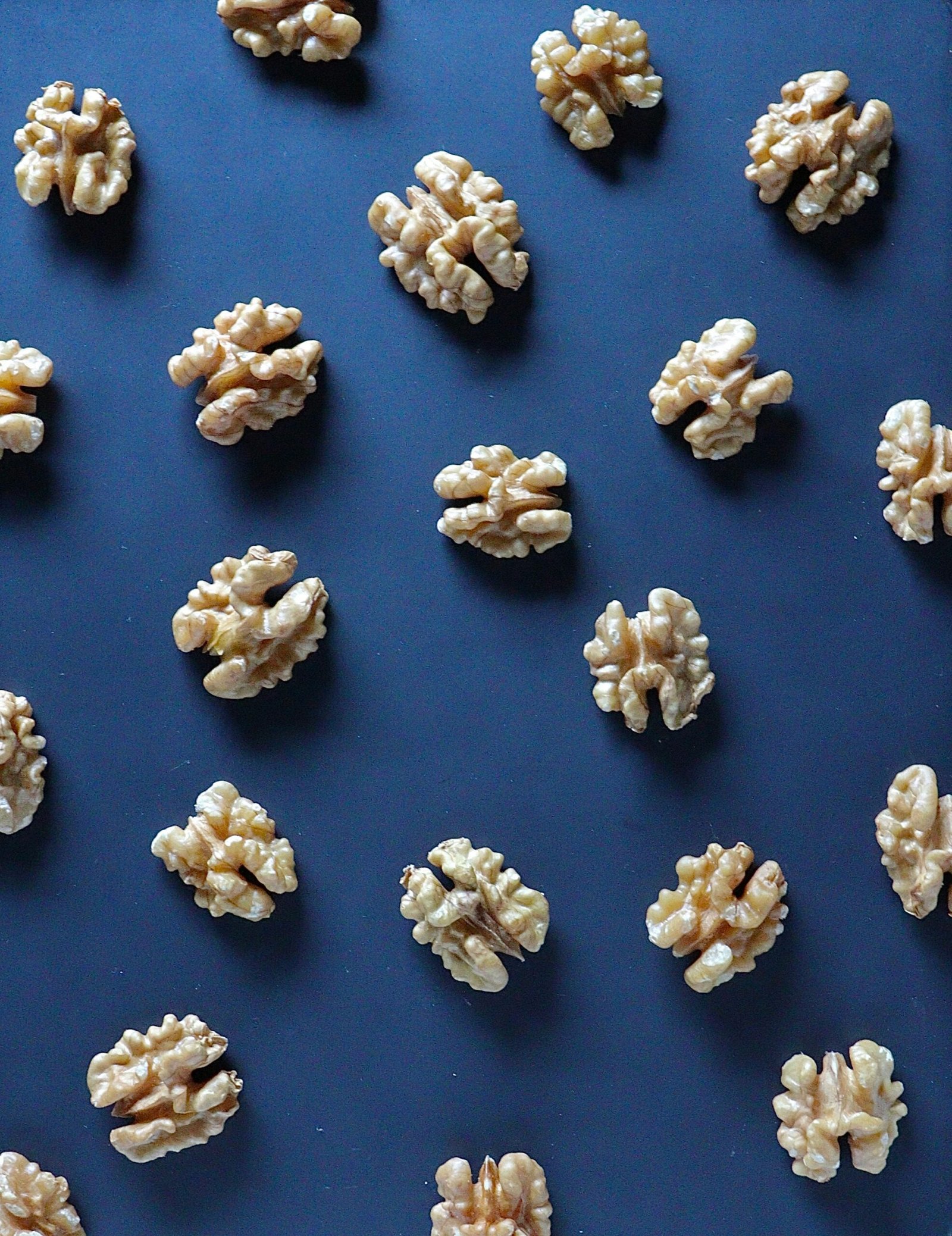
One type of healthy fat that is often praised for its numerous health benefits is omega-3 fatty acids. Omega-3s are a type of polyunsaturated fat that are found in certain foods, such as fatty fish like salmon, mackerel, and sardines, as well as in walnuts, flaxseeds, and chia seeds. These fats are considered essential because our bodies cannot produce them on their own, so we must obtain them through our diet.
Research has shown that omega-3 fatty acids have a wide range of health benefits. One of the most well-known benefits is their ability to reduce inflammation in the body. Chronic inflammation is linked to a variety of health conditions, including heart disease, diabetes, and certain types of cancer. By incorporating omega-3s into our diet, we can help reduce inflammation and lower our risk of developing these diseases.
In addition to their anti-inflammatory properties, omega-3 fatty acids are also important for brain health. Our brains are made up of about 60% fat, and omega-3s make up a significant portion of that fat. Studies have shown that omega-3s are essential for proper brain development and function, and they may even help improve cognitive function and reduce the risk of age-related cognitive decline.
Furthermore, omega-3 fatty acids have been shown to have a positive impact on heart health. They can help lower blood pressure, reduce triglyceride levels, and decrease the risk of heart disease. Omega-3s have also been found to improve cholesterol levels by increasing the levels of good cholesterol (HDL) and reducing the levels of bad cholesterol (LDL).
Aside from their cardiovascular and brain benefits, omega-3 fatty acids may also play a role in supporting overall longevity. Some studies have suggested that omega-3s can help slow down the aging process by protecting our cells from damage and reducing oxidative stress. By promoting cellular health, omega-3s may help prevent age-related diseases and promote longevity.
In conclusion, not all fats are bad for us. In fact, some fats, like omega-3 fatty acids, are essential for our health and well-being. By incorporating foods rich in omega-3s into our diet, we can reap the numerous benefits they offer, including reduced inflammation, improved brain function, better heart health, and even increased longevity. So, don’t be afraid to embrace these healthy fats and make them a part of your daily nutrition.
The Basics of Fats
Before we dive into the different types of healthy fats, let’s first understand the basics. Fats are a type of nutrient that our bodies need to function properly. They provide us with energy, help us absorb certain vitamins, and are essential for the production of hormones.
Fats are made up of molecules called fatty acids. These fatty acids can be classified into three main types: saturated fats, unsaturated fats, and trans fats. Saturated fats are typically solid at room temperature and are commonly found in animal products like meat and dairy. They are also found in some plant-based oils such as coconut oil and palm oil. Unsaturated fats, on the other hand, are usually liquid at room temperature and can be further divided into monounsaturated and polyunsaturated fats.
Monounsaturated fats are considered heart-healthy fats and can be found in foods such as avocados, olive oil, and nuts. They are known to help reduce bad cholesterol levels and lower the risk of heart disease. Polyunsaturated fats, on the other hand, are found in fatty fish like salmon, walnuts, and flaxseeds. They are rich in omega-3 and omega-6 fatty acids, which are essential for brain function and reducing inflammation in the body.
Trans fats, unlike saturated and unsaturated fats, are artificial fats that are created through a process called hydrogenation. This process involves adding hydrogen to liquid vegetable oils to make them more solid and increase their shelf life. Trans fats are commonly found in processed foods such as fried foods, baked goods, and margarine. They are known to raise bad cholesterol levels and increase the risk of heart disease.
When it comes to incorporating fats into a healthy diet, it’s important to focus on consuming more unsaturated fats and limiting the intake of saturated and trans fats. This can be achieved by choosing lean sources of protein, such as poultry and fish, and opting for plant-based oils like olive oil and avocado oil for cooking and dressing.
5. Hormone Regulation
In addition to their role in heart health, brain function, and weight management, healthy fats also play a crucial role in hormone regulation. Hormones are chemical messengers that regulate various bodily functions, including metabolism, growth, and reproduction. Fats are necessary for the production of certain hormones, such as estrogen and testosterone. Without an adequate intake of healthy fats, hormone imbalances can occur, leading to a range of health issues.
6. Skin and Hair Health
Healthy fats are not only beneficial for our internal health but also for our external appearance. Omega-3 fatty acids, found in fatty fish like salmon, have been shown to improve skin health by reducing inflammation and keeping the skin moisturized. They can also help prevent dry scalp and promote healthy hair growth.
7. Energy Source
Fats are a concentrated source of energy, providing more than twice the amount of energy per gram compared to carbohydrates and proteins. When our bodies don’t have enough carbohydrates to use as fuel, they turn to fats for energy. This is especially important during prolonged periods of physical activity or when following a low-carbohydrate diet.
8. Cell Function and Structure
Healthy fats are vital for the proper functioning and structure of our cells. The cell membrane, which surrounds each cell in our body, is made up of a double layer of fats. These fats help maintain the integrity of the cell membrane, allowing nutrients to enter the cell and waste products to exit. They also play a role in cell signaling, which is essential for communication between cells.
9. Immune System Support
Consuming healthy fats can also support a strong immune system. Omega-3 fatty acids, in particular, have anti-inflammatory properties that can help reduce the risk of chronic diseases and support immune function. Additionally, fats are needed for the production of immune cells and the absorption of fat-soluble vitamins, which are essential for a healthy immune system.
10. Overall Nutritional Balance
Including healthy fats in our diet is essential for achieving overall nutritional balance. Fats provide essential fatty acids that our bodies cannot produce on their own. These fatty acids are necessary for various bodily functions, including cell growth, brain development, and hormone production. By incorporating a variety of healthy fats into our diet, we can ensure that we are meeting our nutritional needs and supporting optimal health.
Types of Healthy Fats
Now that we understand why healthy fats are important, let’s take a closer look at the different types of fats that fall into this category.
1. Monounsaturated Fats
Monounsaturated fats are found in foods like avocados, olive oil, and nuts. These fats are liquid at room temperature and can help improve heart health by reducing LDL cholesterol levels. They are also a great source of vitamin E, an antioxidant that helps protect our cells from damage.
2. Polyunsaturated Fats
Polyunsaturated fats are found in foods like fatty fish (salmon, mackerel, sardines), flaxseeds, and walnuts. These fats are also liquid at room temperature and are rich in omega-3 and omega-6 fatty acids. Omega-3 fatty acids have been shown to have numerous health benefits, including reducing inflammation, improving brain function, and supporting heart health.
3. Coconut Oil
Coconut oil has gained popularity in recent years for its health benefits. While it is high in saturated fat, it is a unique type of saturated fat called medium-chain triglycerides (MCTs). MCTs are quickly absorbed by the body and can be used as a source of energy. Some studies suggest that coconut oil may help with weight management and improve heart health, although more research is needed.
4. Avocado
Avocado is a versatile fruit that is rich in monounsaturated fats, fiber, and various vitamins and minerals. It is a great addition to a healthy diet and can help improve heart health, support weight management, and promote healthy skin.
5. Nuts and Seeds
Nuts and seeds, such as almonds, walnuts, chia seeds, and flaxseeds, are packed with healthy fats, protein, and fiber. They make for a nutritious snack and can help reduce the risk of heart disease, support brain health, and aid in weight management.
While all of these types of healthy fats have their own unique benefits, it’s important to remember that moderation is key. While they are good for us, fats are still high in calories, so it’s important to consume them in appropriate portions. Incorporating a variety of these healthy fats into your diet can help support overall health and well-being.
In addition to their nutritional benefits, healthy fats can also add flavor and texture to meals. For example, drizzling olive oil over a salad or using avocado as a spread can enhance the taste of the dish while also providing health benefits. It’s all about finding creative ways to incorporate these fats into your meals and snacks.
Overall, understanding the different types of healthy fats and incorporating them into your diet can have a positive impact on your health. From improving heart health to supporting brain function, these fats play a crucial role in our overall well-being. So, don’t be afraid to embrace healthy fats and enjoy the delicious and nutritious foods that contain them.
6. Include Nut Butter in Your Diet
Nut butter, such as almond butter or peanut butter, is a delicious and versatile way to incorporate healthy fats into your meals. Spread it on whole grain toast, add it to smoothies, or use it as a dip for fruits and vegetables.
7. Cook with Coconut Milk
Coconut milk is a rich source of healthy fats and can be used in a variety of dishes. Use it as a base for curries, soups, or even in your morning oatmeal for a creamy and nutritious twist.
8. Enjoy Dark Chocolate
Dark chocolate with a high percentage of cocoa is not only a delicious treat but also a good source of healthy fats. Enjoy a small piece as an after-dinner indulgence or melt it and drizzle it over fruits for a decadent dessert.
9. Incorporate Chia Seeds into Your Recipes
Chia seeds are packed with healthy fats, fiber, and antioxidants. Sprinkle them on top of yogurt, blend them into smoothies, or use them as an egg substitute in baking recipes.
10. Don’t Be Afraid of Eggs
Eggs are a nutrient-dense food that provides healthy fats, protein, and a range of vitamins and minerals. Include eggs in your diet by enjoying them boiled, scrambled, or as an ingredient in various dishes.
11. Use Greek Yogurt as a Healthy Fat Source
Greek yogurt is not only a great source of protein but also contains healthy fats. Use it as a base for dips, dressings, or enjoy it as a snack with some added fruits and nuts.
By incorporating these tips into your daily routine, you can easily increase your intake of healthy fats. Remember, moderation is key, and it’s important to balance your fat intake with other essential nutrients for a well-rounded and nutritious diet.
